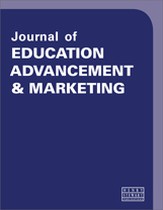A process for developing effective gift documentation: Considerations in working with donors and gift officers
Abstract
Gift documentation often requires a special blend of talents: negotiating skills, legal acumen and a bit of clairvoyance. The author of a gift agreement has to balance the mission of the institution with the donor’s wishes — two variables that do not always align. Drafting a solid gift agreement also requires a good working knowledge of what an organisation can do within the letter of the law, against a backdrop of a legal landscape that changes almost daily. And finally, an effective gift agreement has to take into account what the future holds for the terms of the agreement, particularly for endowed funds that are meant to last forever. Documenting a gift sets the foundation for an organisation’s relationship with its donors. An effective gift agreement clearly outlines the donor’s intent, managing expectations and setting the terms of the gift’s administration. A badly constructed gift agreement can erode trust and irreparably damage the donor’s relationship with the organisation. In drafting gift documentation, it is crucial to get things right at the very beginning to avoid bad publicity, legal battles and disgruntled donors. This paper describes how to document funds that meet three basic but critical attributes: funds must be legal, possible and practical. This paper also looks at donors’ motivation and offers suggestions on how to guide them into creating funds that will benefit the institution and meet their philanthropic goals. It also lists elements that effective gift agreements must contain to function well.
The full article is available to subscribers to the journal.
Author's Biography
Debbie Meyers has worked in advancement for more than 30 years, much of that time in higher education. In addition to creating and enhancing donor relations and stewardship programmes at the University of Florida, Carnegie Mellon University and the University of Maryland, she has built communications and development programmes for a Catholic high school (her alma mater), an art museum and a health science centre development office. Her most recent position is heading advancement operations for Chautauqua Institution, where she oversees donor relations and stewardship, annual giving, prospect research, gift administration, donor data management, donor communications and community engagement. A founding board member of the Association of Donor Relations Professionals (ADPR), she chaired its international conference and has presented every year at ADPR’s conference, even several years before the organisation became official. She has served on many of its committees and contributes newsletter articles and guest blogs. In addition to serving on faculty for Academic Impressions webinars, conferences and workshops, she also is a faculty star recipient from the Council for Advancement and Support of Education. Her passion for gift documentation comes from her dedication to honoring donor intent, problemsolving skills and life-long love of writing. She has drafted more than 200 gift agreements, including one for US$31m in 2014. Debbie has a bachelor’s degree in English, with minors in linguistics, German and the Classics, from Loyola University in New Orleans, as well as a master’s degree in journalism, with a minor in public relations, from the University of Florida.
